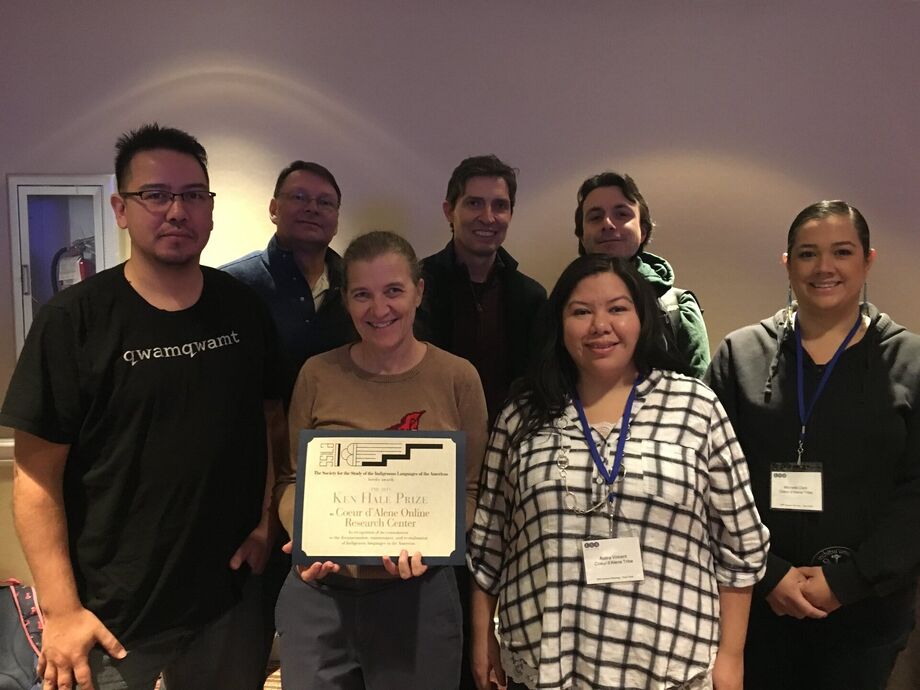Coeur d’Alene is an Indigenous language spoken by the Coeur d’Alene people, whose homelands are in northern Idaho. The language is endangered: the last fluent speaker died in 2018. Now, the tribal language program, in collaboration with linguists from two universities, is using NEH funds in the form of a Documenting Endangered Languages grant to develop and maintain online language resources, a powerful tool in their language revitalization efforts.
Read More
The Coeur d’Alene Online Language Resource Center (COLRC) acts as a single searchable repository for a wide range of language resources, from dictionaries to archival recordings of personal narratives and coyote stories. The website has made these resources widely available, in many cases for the first time—many of the audio recordings, for example, were on reel-to-reel tapes and held in archives far from the Coeur d’Alene reservation. Digitizing, transcribing, and posting these recordings to the website has made them accessible as language learning tools; it also helps preserve the voices of fluent Coeur d’Alene speakers for future generations. “These materials are our speakers now,” said Audra Vincent, an instructor with the tribal language program. COLRC has been particularly vital during the COVID-19 pandemic, during which the language program hasn’t been able to offer as many language classes as it usually does. The website’s existence ensures that students still have access to materials to continue learning. It has also allowed members of the Coeur d’Alene diaspora who live too far from the reservation to attend language classes to access these invaluable resources.
NEH funding has allowed the project to become the invaluable resource it is today. Collaborations with linguists Amy Fountain, at the University of Arizona, and Shannon Bischoff, at Purdue University Fort Wayne, have ensured that the COLRC website is powerful and efficient, and that it meets the needs of language learners. The grant also supplied the language program with the financial resources to train and hire a tribal member to translate archival sources into the contemporary Coeur d’Alene alphabet. That tribal member has since become a language instructor in the program.
